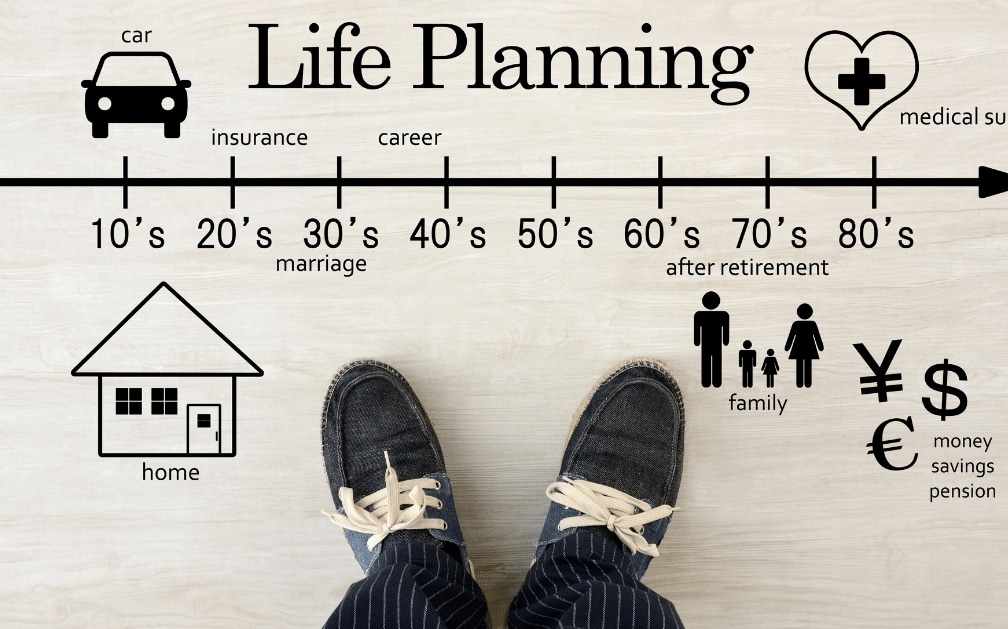How Much Life Insurance Do I Need?
How Much Life Insurance Do I Need?
If you’re asking this question, you’re taking your future seriously.
Thinking about death is uncomfortable. Perhaps that’s why people purchasing life insurance often rush to an online calculator and punch in some arbitrary number they imagine their family can live on just to get the whole process over with.
Does that approach work?
Nope. According to Nerd Wallet, 30 million people with life insurance coverage are underinsured.
If you’re one of the millions who prefer conducting purchases online with minimal human intervention, is it possible to pinpoint how much life insurance you need on your own?
Yes. There’s even a formula or two.
How to Determine How Much Life Insurance You Should Have
Before you start shopping for life insurance companies online, take a thoughtful look at the following factors: Age, Life Expectancy, Health, Debts, Assets, and Income.
Age
Unlike with car insurance, the younger you are when you purchase your life insurance, the less you’ll pay in premiums. If you’re just starting out, consider a term life insurance policy. That will save you even more money in the long run and may avoid a future medical exam to boot.
Life Expectancy
According to most sources, the average person will enjoy their 78th birthday. However, life insurance is about what happens if you don’t live that long, right? What you need to consider is how long your dependents will live and for how long they will need financial assistance.
Health
You and your dependents may be healthy now. But what about 30 years from now? Does your spouse have a family history of cancer or heart disease? Do any of your children have special needs?
Do you or your dependents smoke? Smoking raises your insurance premium up to three times the regular rate. If you stop smoking, your rate will come down.
Also, advances in artificial intelligence technology across the insurance industry have improved accuracy in determining risk factors, which improves trust between those selling and those buying the quotes offered.
And if you smoke, drink, or have a risky hobby, don’t lie to the insurance company about it. Advanced technology also improves the likelihood that you will get caught and your family denied benefits.
Debts & Assets
If your assets outweigh your debts, you may not need as much life insurance.
Debts include things like car loans, credit card balances, and tax debts. You don’t have to include your federal student loan balance. It’s canceled upon your death. But you may want to factor in your funeral expenses here.
Assets include your savings, your investments (mutual funds, stocks, and bonds), your retirement savings (IRAs and 401Ks), and any other insurance policies you have.
Income
Questions to ponder:
- Are you your family’s sole source of income?
- If so, how much replacement income will your family need if you pass away? For how long?
- Is your salary your only source of income, or are there other income streams?
- If your spouse is responsible for day-to-day household tasks, how much would you need to cover housekeeping and childcare costs if they had to make up for your lost income?
- Do you have any children who will need special care into adulthood?
- Do you have dependent parents who will need their care costs covered?
- Are you a business owner? There are insurance options that will cover the costs of keeping your business going or to help your beneficiaries sell the business in the event you pass away before you are able to sell or retire.
Quick & Simple Formulas
As promised, here are three simple formulas to give you an idea of how much life insurance you need to give you and your family peace of mind.
FORMULA 1: Annual Salary x Years Left to Retirement
Multiply your current salary by the number of years you think you will continue to work.
FORMULA 2: Annual Salary x 10 + –
- Add up your debts.
- Add up your assets.
- Multiply your current annual salary by 10.
- Add your total outstanding debt figure to that number.
- Subtract your total assets figure from the step 4.
The final number should give you an idea of how much life insurance you need.
FORMULA 3: DIME Formula
DIME stands for four factors: DEBT, INCOME, MORTGAGE & EDUCATION.
Debt factor
Add up your debts, including funeral expenses. Do not include your mortgage.
Income factor
Determine how many years your family will need your income should you pass away. Multiply that number by your current salary.
Mortgage factor
Determine how much you still owe on your mortgage.
Education factor
Estimate your children’s college costs. Exclude anything you’ve already saved for their education.
Add up the totals from each of the four factors. That should give you a comprehensive idea of how much life insurance you need.
If you’re spinning out from the totals you just generated, it’s not as bad as you think. According to the Life Insurance Marketing and Research Association, 50% of Americans believe life insurance costs more than it does. They’re wrong.
What you actually end up paying may surprise you—especially if you opt for level term life insurance. You can pay as little or as much as you want for as little or as long as you want. Permanent insurance premiums are more costly.
No matter which type of insurance you consider, compare at least three quotes before making a final decision. Life insurance companies vary in the premiums they offer. Make sure you find the best deal for your family.
Find out how much you can save on term life insurance. Get your life insurance quotes comparison today.









